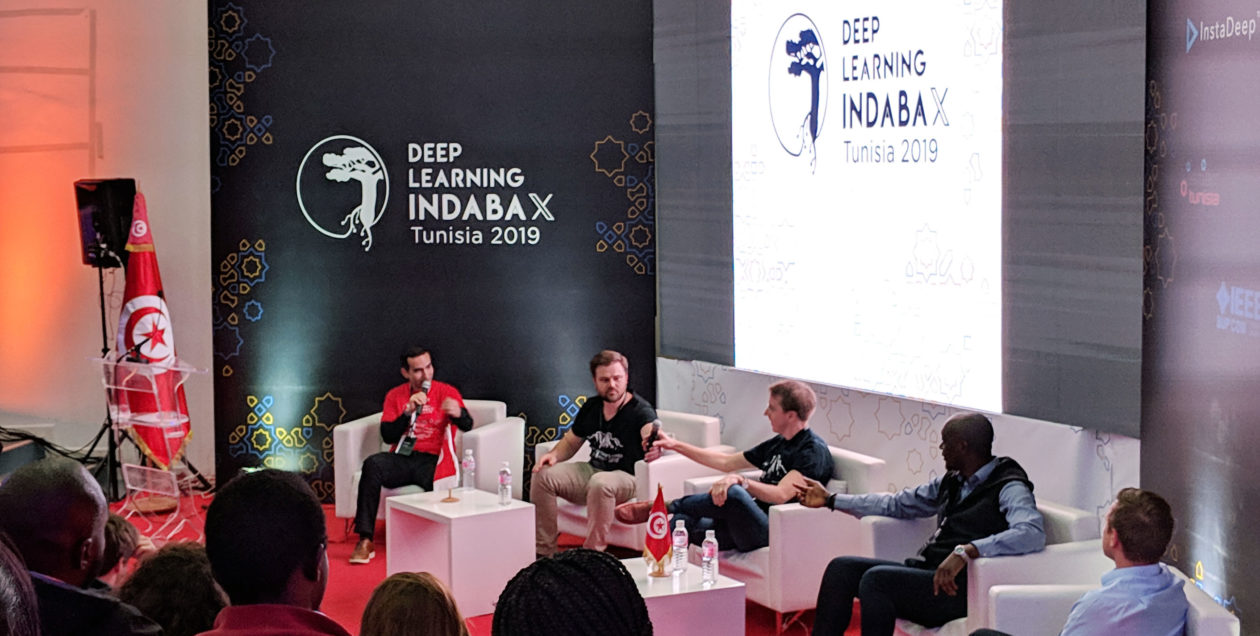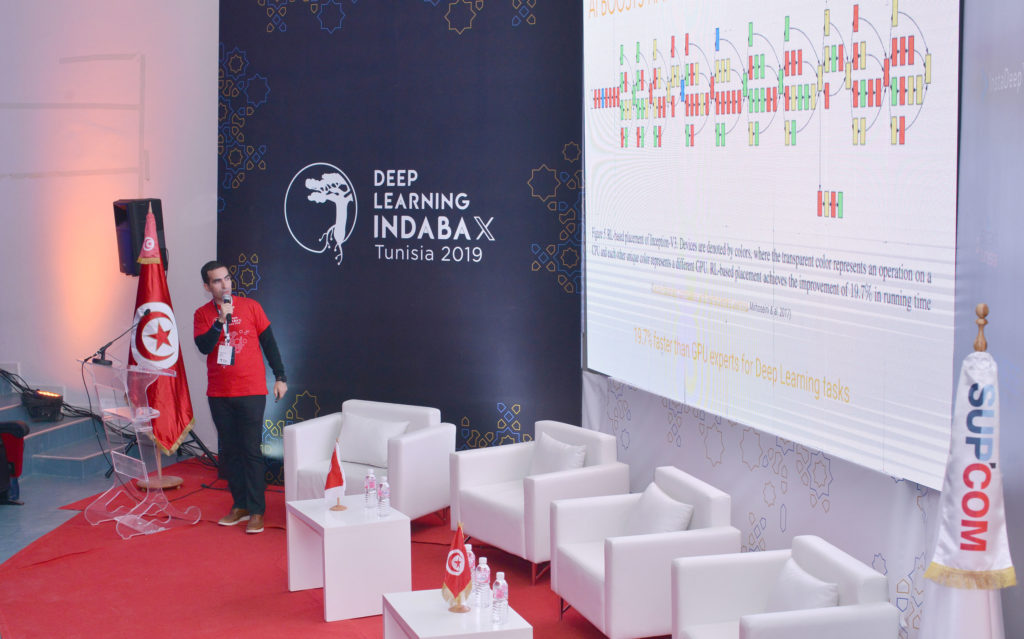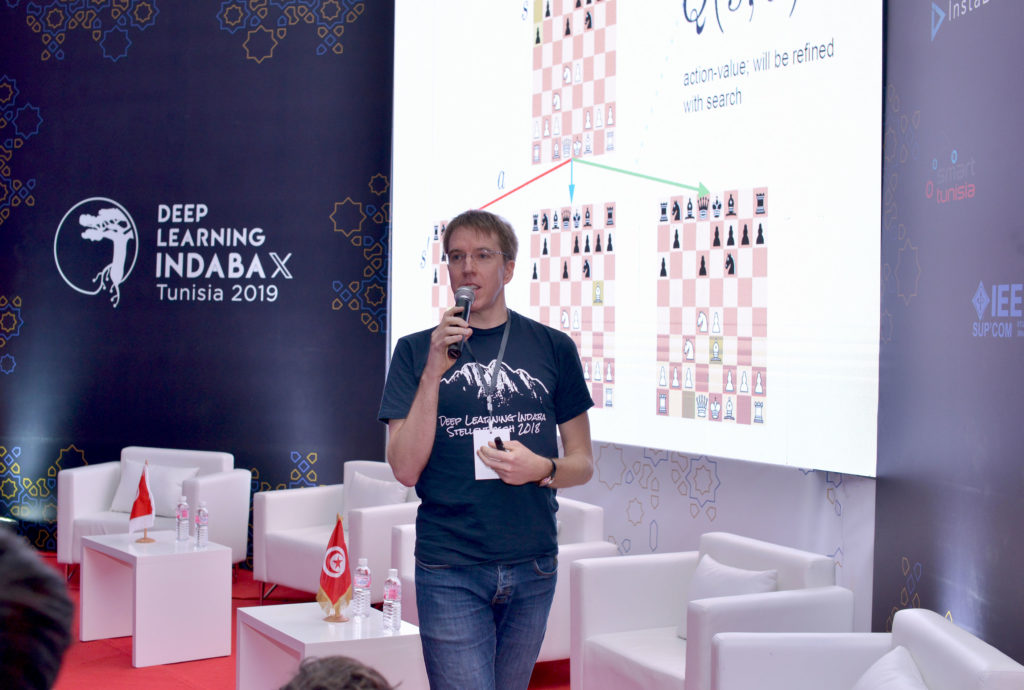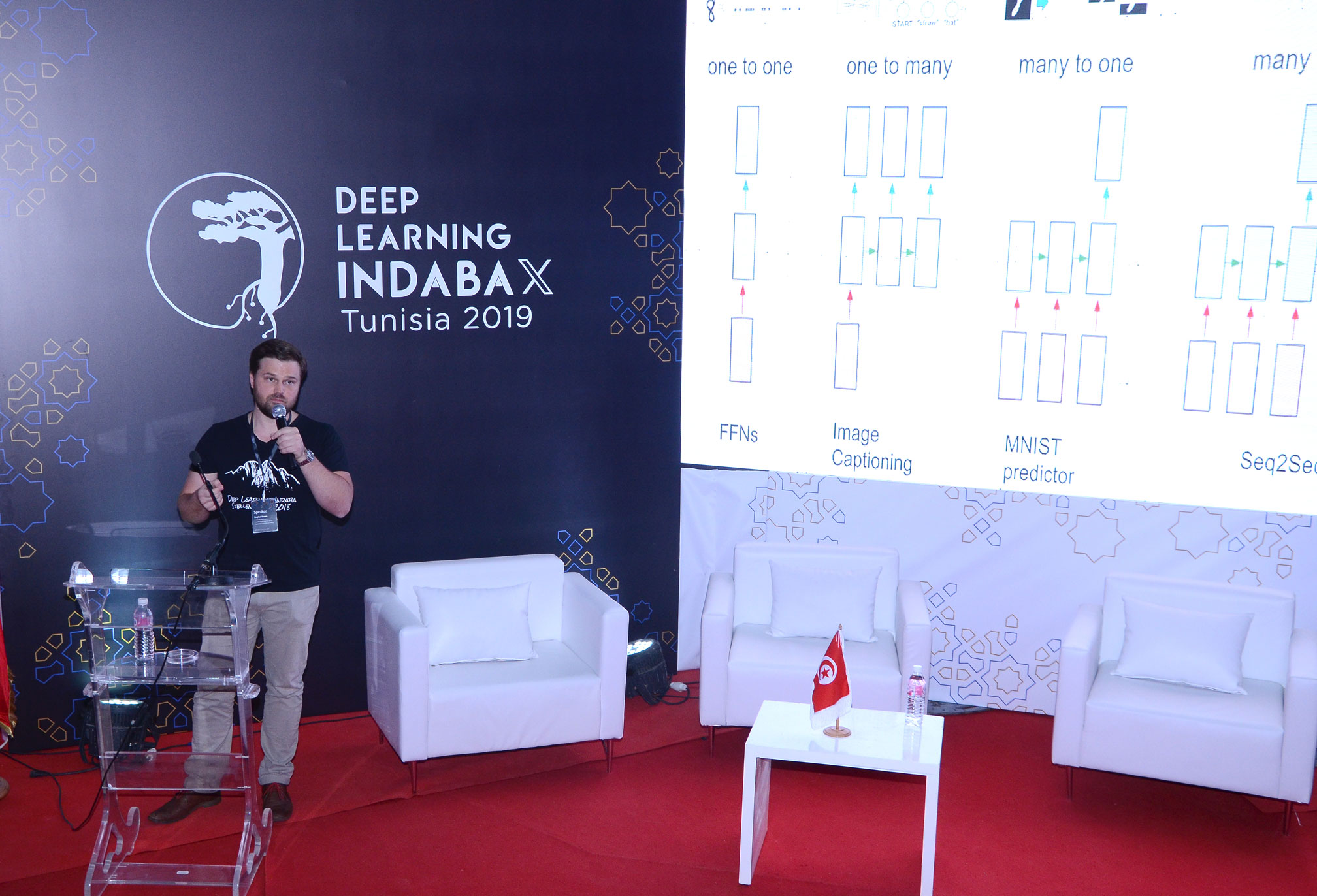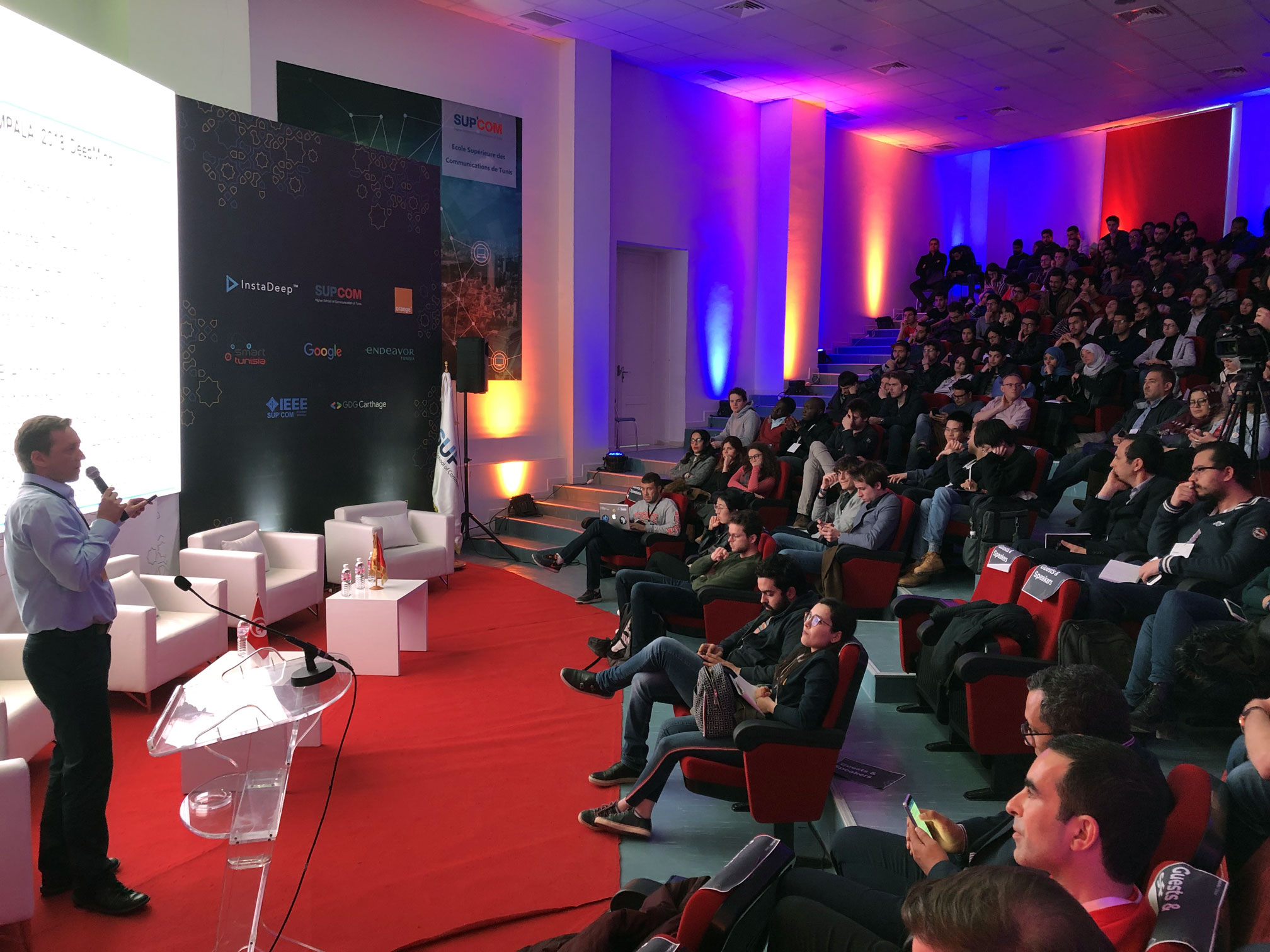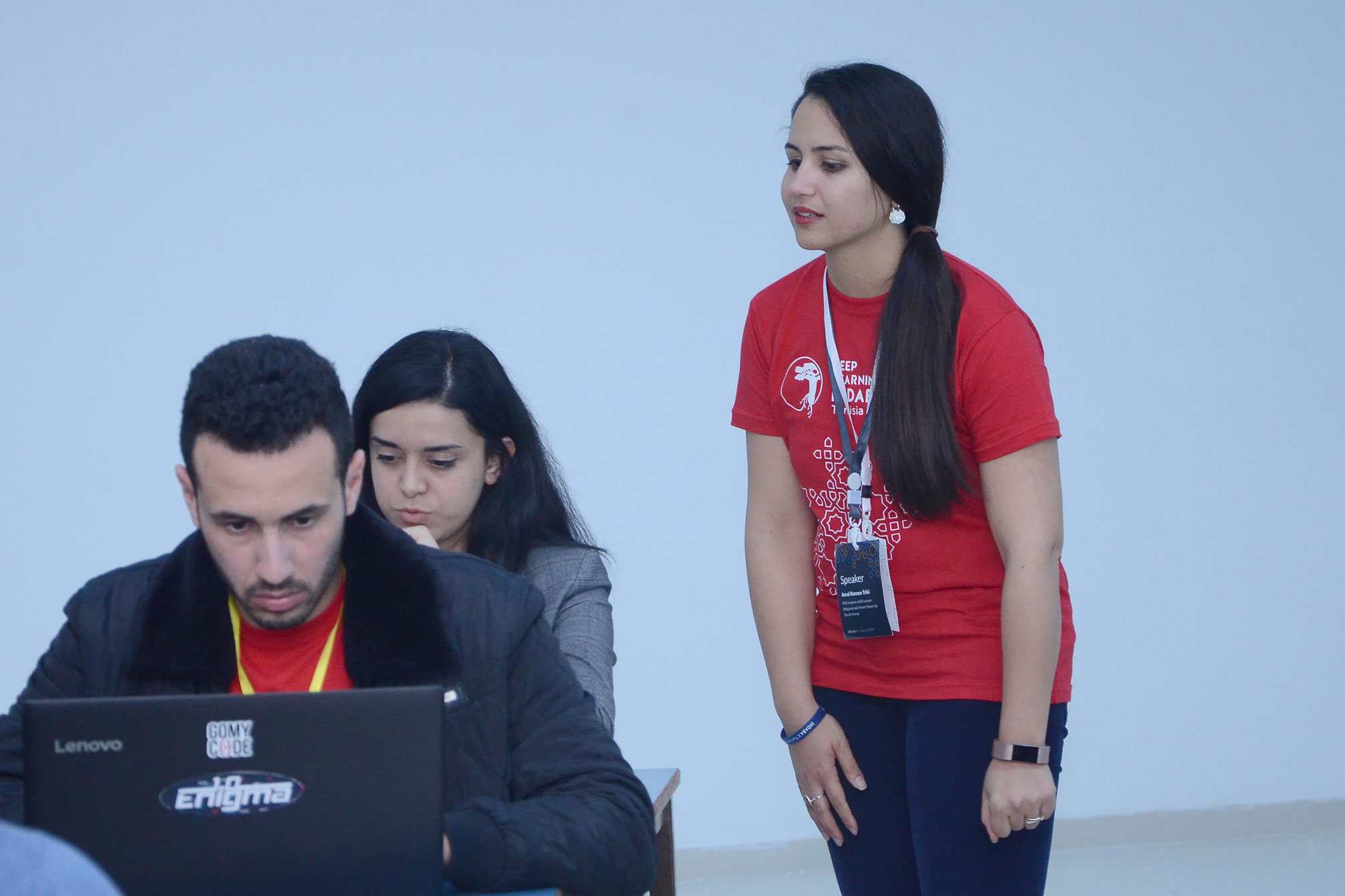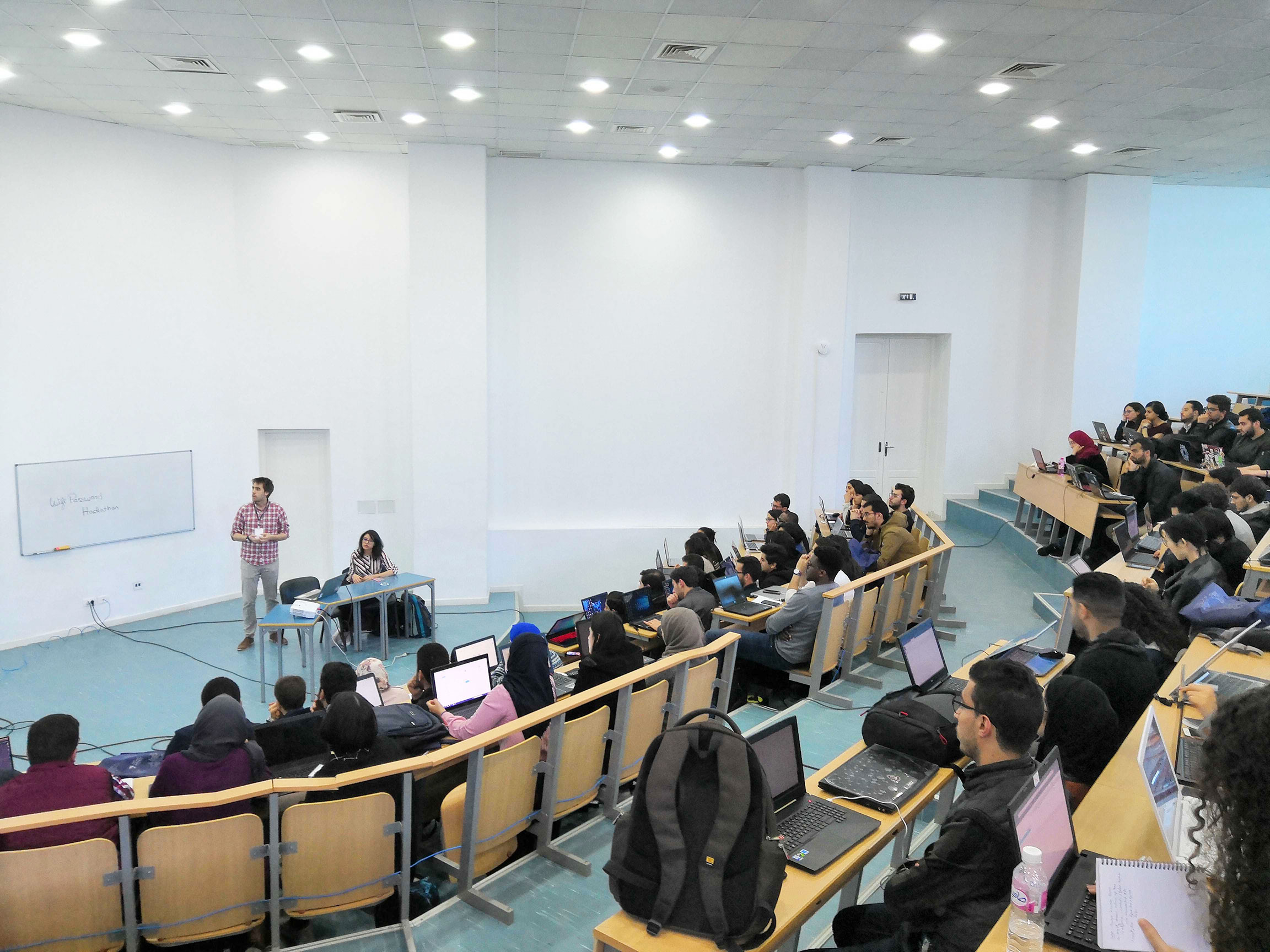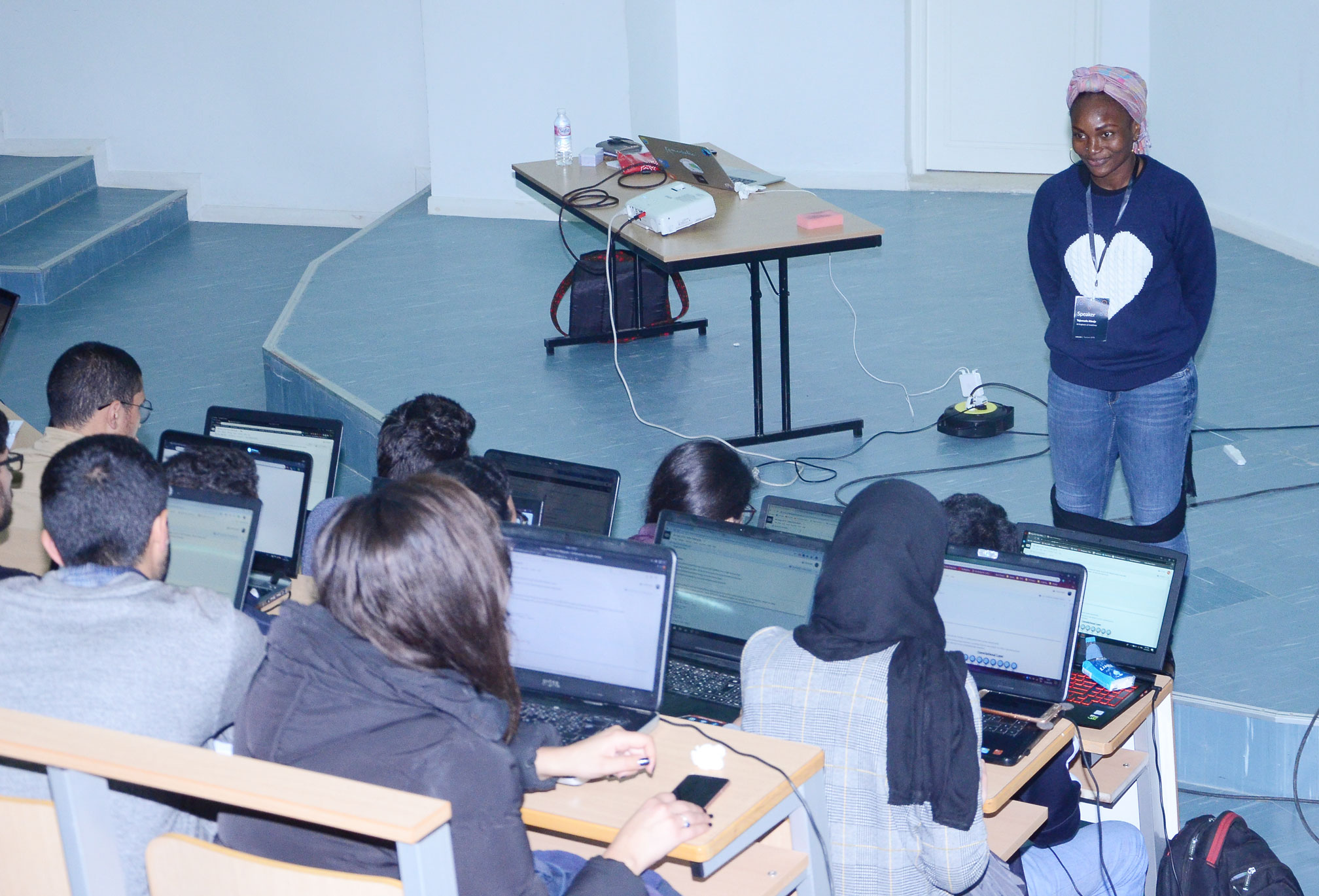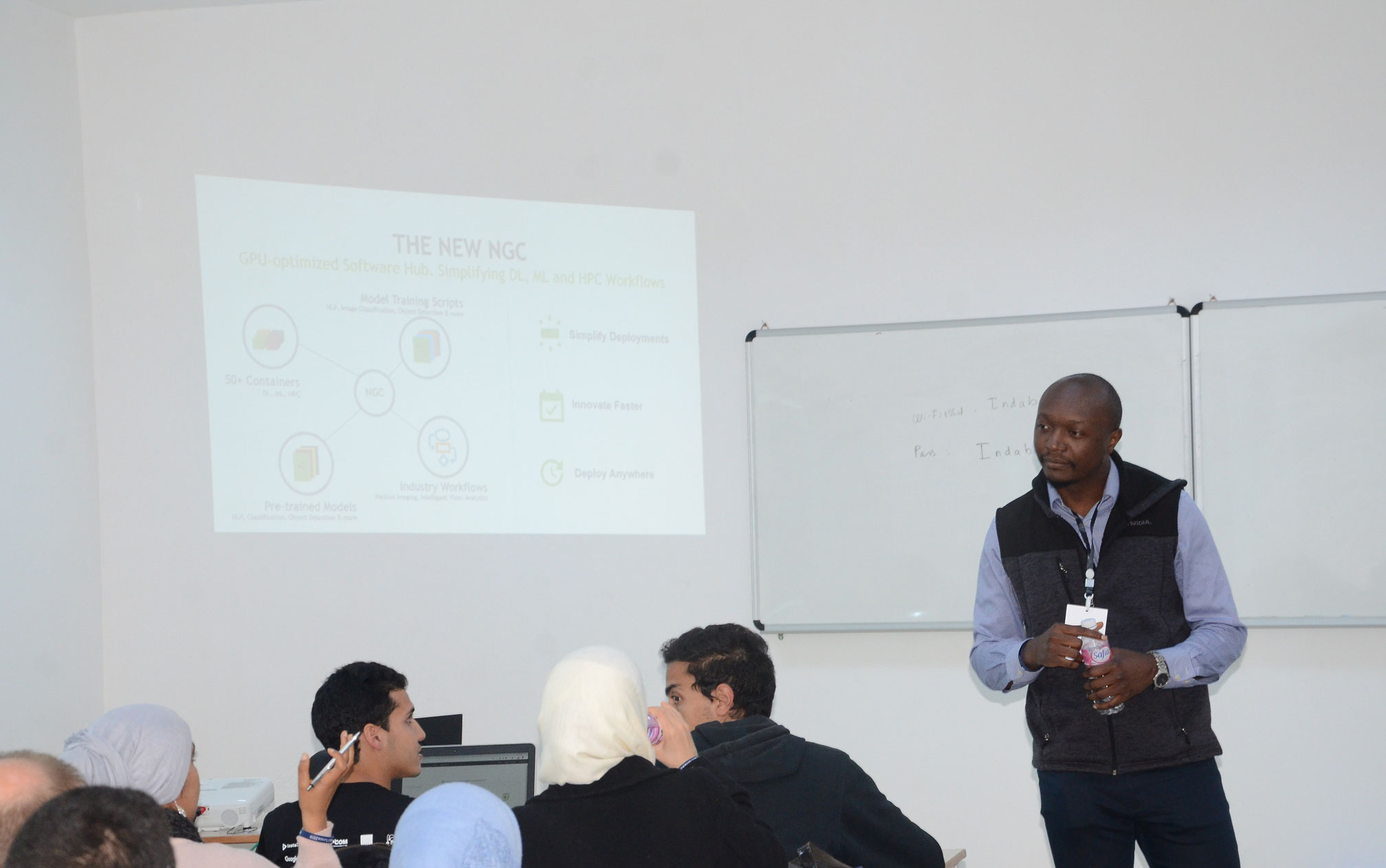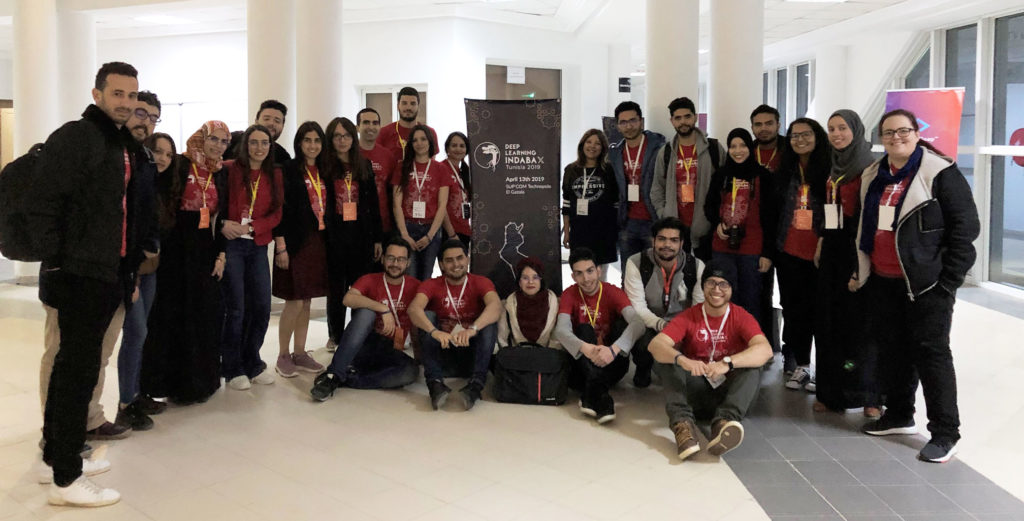IndabaX Tunis is an extension of the most important AI event series in Africa, ‘Deep Learning Indaba’. Held at Higher School of Communications of Tunis (SUP’COM), IndabaX Tunis aimed to bring the African community together to teach, learn and debate state-of-the-art Machine Learning and AI developments, and to highlight the innovative efforts already made in the field of AI in Tunisia. Additionally, the event created a unique platform for the Tunisian AI community to interact with world-leading researchers from some of the most influential AI companies in the world including NVIDIA, Google DeepMind and InstaDeep, who were present for keynotes and engaging debate.
The value and importance of the event were evident in its audience, who ranged from the Tunisian government, industry leaders and various AI start-ups, to university students and young engineers interested in progressing their career.
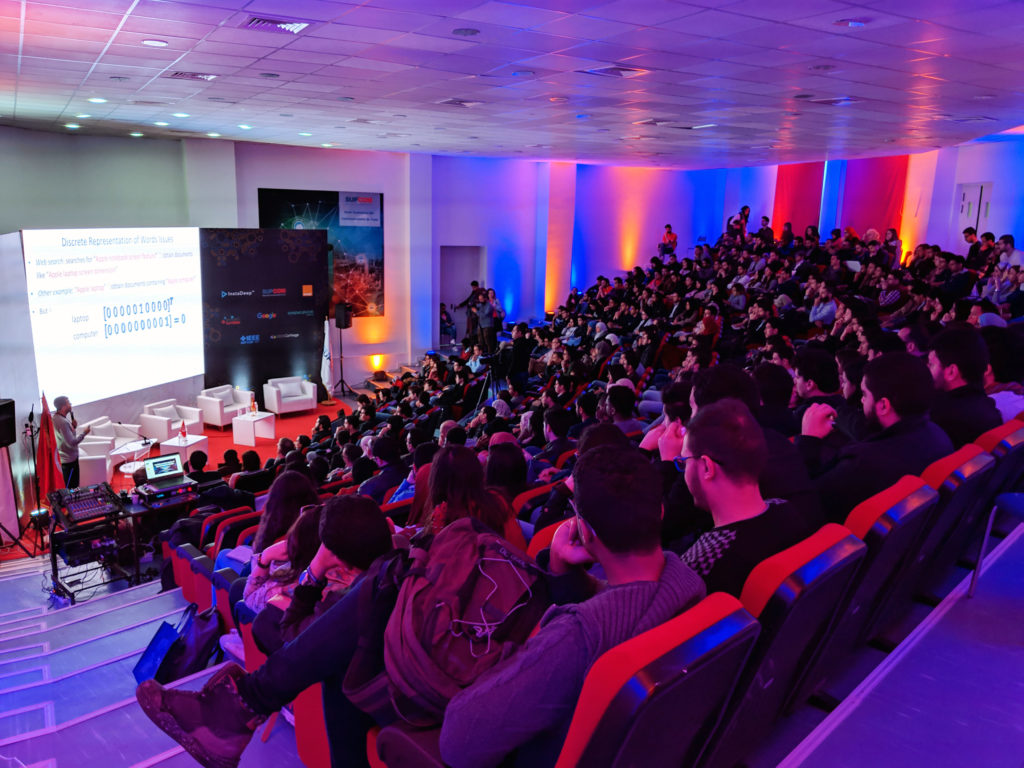
Part 1: Quality lectures
Split into two parts, the event’s morning session saw outstanding, internationally recognised researches give high-quality lectures.
Co-founder and CEO of InstaDeep, Karim Beguir, had the honour of opening the event with a keynote on the opportunities the lies ahead in Africa, and how far we have already come on the continent today. To great feedback from the audience, Beguir advised how to start an AI adventure and the critical factors for success, using his own experience as an entrepreneur as reference.
Next up was Ulrich Paquet, Research Scientist at Google DeepMind. With more than ten years of experience in the field of AI/ML having worked for companies such as Microsoft, Apple and now DeepMind, Ulrich gave an exciting dive into different themes in AI and how the development has been over the years.
Further on, the stage welcomed Mourad Gridach, Postdoctoral Researcher at the University of Colorado Anschutz, who spoke about Deep Learning for NLP and healthcare, as well as the challenges Africans working in ML face in today’s environment. Following Gridach was Head of Machine Learning at InstaDeep and previously Tech Lead at Google DeepMind, Marek Barwinski, diving into Reinforcement Learning at Scale. Last, but not least of the day’s keynote speakers, was Stephan Gouws, Senior Research Scientist Google DeepMind. As Barwinski did before him, Gouws took the eager-to-learn audience further into the nitty-gritty techniques of ML, speaking about the evolution and success of neural sequence models.
- Speaker : Stephan Gouws, DeepMind
- Speaker: Marek Barwinski, InstaDeep
The broad variety of speakers from different backgrounds, as well as the span of topics presented in the keynotes, was a considerable advantage adding traction to the panel debate that followed. As with any good panel discussion, you had to be there to really understand the value-add; however, a few of the main takeaways were that AI – the fourth industrial revolution – has a low barrier to entry, and that awareness of Africa specific challenges and opportunities allow local developers and business people to deploy solutions in little-to-no time.
The panellists identified a need for local context specific datasets such as linguistic, image etc. to boost the quality and specificity of applications, and furthermore, the opportunities for an enhanced synergy between universities and the private sector as applications drive research directions which in turn drive business growth. Finally, a call for increased government-academia-business cooperation on cloud-compute access was made, with Alliance4AI evangelising success stories.
Part two: Engaging knowledge-sharing workshops
The AI research community is refreshingly open and collaborative, and we see centres of youthful passion and engineering excellence in ML pop-up in cities all over Africa. With this in mind, workshops were on the agenda for the second part of the event, intending to implement concepts in practice and acquire skills.
Four different research areas were presented along with a Q&A session to learn from the researchers directly, something the visitors took advantage of, as even late in the day the level of interaction and motivation was still high!
The topics and speakers were as follow:
Workshop 1: Image Segmentation for Autonomous Driving, by Amal Rannen Triki
Workshop 2: Deep Reinforcement Learning, by Alexandre Laterre and Rihab Gorsane
Workshop 3: Convolutional Neural Networks, by Tejumade Afonja
Workshop 4: Simplifying AI, Data Science and HPC Workloads with NGC by Alexander Tsado
- Amel Rannen Triki, DeepMind
- Alex Laterre and Rihab Gorsane, InstaDeep
- Tejumade Afonja, InstaDeep
- Alex Tsado, Nvidia
We could not have been more pleased with the execution of the first-ever IndabaX Tunis and would like to extend a huge thank you to all our speakers and not least our partners; SUP’COM, Google, Orange, Smart Tunisia, Endeavor Tunisia and GDG Carthage for making the event possible.
The Deep Learning Indaba movement is a series of events aimed at strengthening the development of ML and AI in Africa. In 2019, 27 African countries are hosting an IndabaX event, and we at InstaDeep are humbled and honoured to be able to take part to help drive the change in AI in Africa. One main driver for us is that IndabaX events address the scarcity of funding and immigration challenges faced by African talent wishing to attend major ML conferences. Therefore, we vow to energise each of IndabaX sites by hosting local streaming parties for future events.
We are already excited about the next IndabaX Tunis, hope to see you there!
